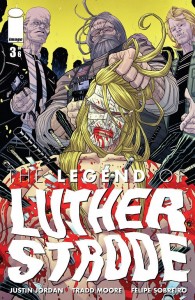 Editor’s Note: Did you know a young boy drowned the year before those two others were killed? The editors weren’t paying any attention… They were making spoilers while that young boy drowned.
Editor’s Note: Did you know a young boy drowned the year before those two others were killed? The editors weren’t paying any attention… They were making spoilers while that young boy drowned.
Justin Jordan needs to stop, take a breath, and be very, very careful from here on out. Don’t worry, I will explain.
If 2011’s The Strange Talent of Luther Strode was inspired by a 1980 horror movie, then its sequel, The Legend of Luther Strode, is clearly shaping up to be at least somewhat inspired by a 1980s sequel to a horror movie: Aliens. I say this in the sense that, where Alien was a moody, claustrophobic story about an unstoppable monster picking people off one by one, Aliens instead was a big damn action movie that used the trappings of the original movie, like facehuggers, soldier aliens and acid blood, as a plot device to allow people to blow a bunch of shit the fuck up.
And for most of the first three issues of The Legend of Luther Strode, writer Justin Jordan has delivered a very similar experience. He has taken the details set up in the original series – superhuman strength and speed, the ability to see and foretell the physical effects of pending violence, and being pretty much all but bulletproof – and used them to set up not only big action setpieces of Luther stomping the crap out of gangs of criminals who are a motion tracker and a “Game over, man!” away from being Colonial Marine cannon fodder, but long battle sequences between Luther and similarly-powered Binder. Throw in Luther’s friend Petra – a regular woman with a surfeit of cojones running around this superpowered mayhem with just a gun – and Jordan even has his Ripley, albeit in a supporting role. All we’re missing is the damn ship’s cat and Lance Hendriksen… and based on his current filmography, he’d probably show up if Jordan asked nicely and offered a hot meal.
But if this latest Luther Strode series is, in fact, Aliens, then there must be an alien queen. And in The Legend of Luther Strode #3, we meet a contender – I say “contender” because halfway through the series is a little early to be really meeting the final Big Bad – and this contender is… shall we say, problematic. Problematic in the sense that his identity is such a bold move that it can really only elicit one of two responses.
Those responses being either, “Wow!”, or “…are you fucking kidding me?

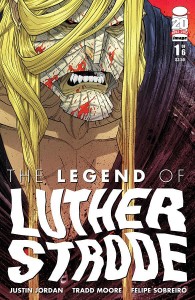
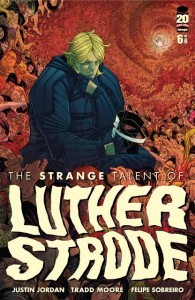
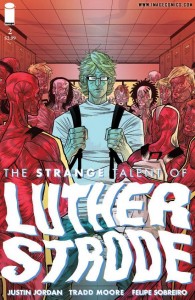
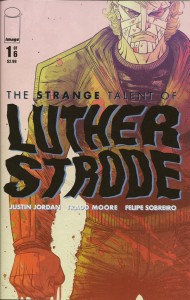
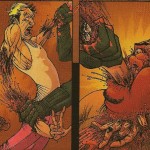
 Podcast RSS Feed
Podcast RSS Feed iTunes
iTunes Google Play
Google Play Stitcher
Stitcher TuneIn Radio
TuneIn Radio Android
Android Miro Media Player
Miro Media Player Comics Podcast Network
Comics Podcast Network